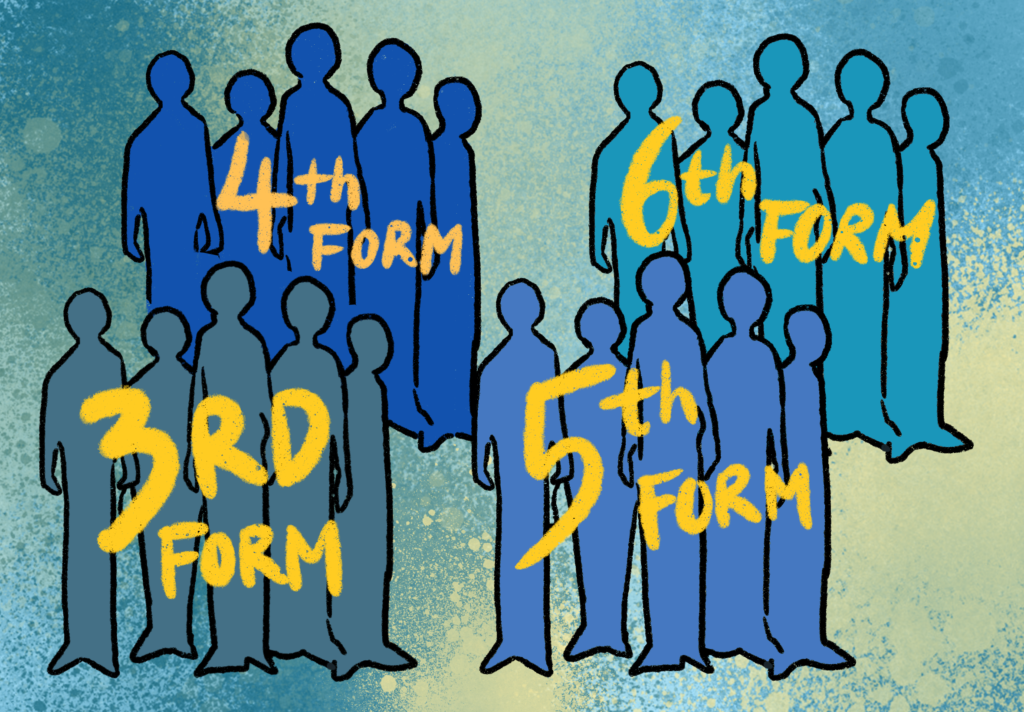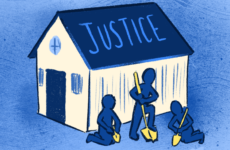
Graphic by Evelyn Kim ’25/The Choate News
By Harry Kim ’28 Opinions Writer
Every year, upon receiving acceptance letters from Choate, many prospective students eagerly fill out their course and athletics request forms. However, as they scroll through all the possible electives provided for students, they often find that numerous courses are unavailable to them.
At Choate, most electives are open exclusively to upperclassmen or students who have taken the course’s prerequisites, reducing underformers’ freedom to take subject-focused courses. Consequently, many underclassmen, without fully understanding why Choate implemented the current elective course policy, want reform. However, the current policy is legitimate, and Choate should not increase the availability of electives to underclassmen but should instead consider creating elective courses specifically for underclassmen.
The current policies were created to group students according to maturity and age. Most freshman underclassmen range between 14 and 16 years old and thus lack the experience of an upperclassman. Juniors and seniors, who are currently taking harder electives, have already developed their writing, reading, and research skills. Underclassmen might lack these foundational skills, which high-level electives expect students to already possess. For instance, many Economics classes offered require students to have taken Macroeconomics 400, where they learn important skills required for higher-level Economic classes. Therefore, it is imperative that new students learn these skills before actually taking harder courses.
However, many underclassmen repeat a year, and some even take harder non-elective courses than upperclassmen. So why wouldn’t Choate allow qualified underformers to explore all the electives?
The biggest obstacle is in Choate’s current elective course system. According to Humanities teacher Mr. James Stanley, “Choate’s current elective course systems are designed to be sequential.” For example, taking Constitutional Law before U.S. History would make it much harder for a student to understand the class. Hence, many students take political science classes concurrently with, or directly following U.S. History classes. Moreover, even if a student has self-studied and has achieved proficiency in a particular subject, without the proof and record from previous schools or organizations, they will still be unable to take high-level courses in their third and fourth-form years.
Increasing the availability of currently fifth- and sixth-form-only electives to underformers can also burden them significantly. Many new underclassmen need time to adjust to life at Choate — homesickness, rigorous academic courses, and forming relationships with both faculty members and friend groups are extremely mentally demanding. With these adjustments before them, taking harder elective courses would only create more stress.
All in all, while the current policy prohibiting underclassmen from taking certain electives is reasonable, there is room for improvement. Introducing dedicated elective courses for underclassmen can equip students with essential skills before they take challenging courses. If the School initiates new elective courses for underclassmen, the discontent of not being able to take various elective courses would subside, and hopefully, underclassmen are better prepared for future academic courses.
Choate should not increase the availability of cuurrent electives to underclassmen; rather, they can create new elective courses dedicated to them. Luckily, in the current system, a new underclassman who really wants to pursue and dive deeper into certain subjects can always join clubs run by Choate students and, as active members, expand their knowledge.




